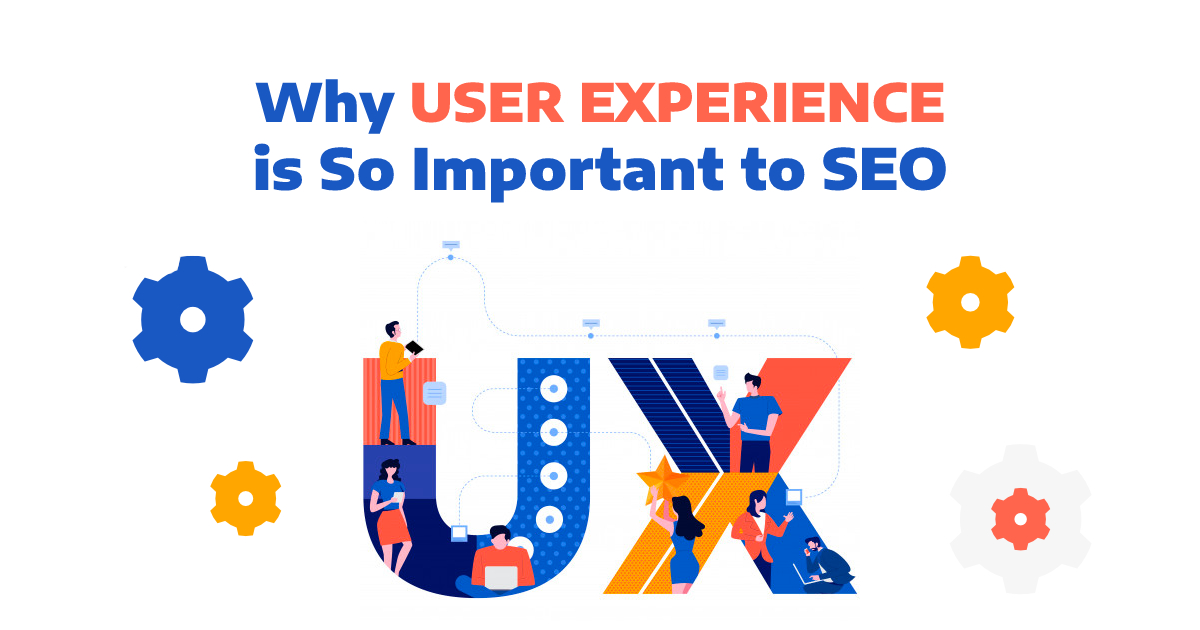Search Engine Optimization has many facets and components, and in all reality, the list is never-ending. However, in its most basic form, the key fact to remember is that Google and the other major search engines have a business. That is to provide the best information relating to the inquiry that is typed into their search engine. And however good your links, information, content, or anything else are, the user experience for your human visitor will always be crucial.
A perfect example of a bad user experience is when someone visits a site, and the first thing they are greeted with is an advert or a video with a long load time. People in the internet age simply don’t have the patience or the time, or maybe even the bandwidth to wait for flashy graphics, videos, or advertising to load, when they are laser-focused on getting the information they are focused on. It would be unfair to say that this is the only thing search engines concern themselves with, and while it’s a fairly crude measurement, bounce rate is vital as far as the search engines are concerned.
If they have ranked your site high in their index, and they notice that the majority of visitors leave within 10 seconds of landing on your site, your SERP won’t remain high for very long. Bounce rate tells Google that your site is either not providing the information its client is searching for, or that the user experience is horrible. In either event, this has negative connotations for Google and its customer base, and so it will step in rapidly to rectify the issue.
Organization and Planning of Your Website
The entire user experience of your website is almost always decided in the early planning stages. Once you have decided on the structure of the site, the menu systems, and the general flow and feel of your site, it then becomes increasingly difficult to change things the further down the path you go. So while it might not be the most exciting part of your website, restrain yourself from posting content too early and fully plan out your site before you start to post. The time you invest in the planning stage will more than pay off further down the line.
Ease of Use
Take your time and visit at least 100 websites, note down what you like about each, and note what you detest. What makes one site better than the next one? Once you actually look at websites you enjoy using, you may start to notice patterns that you can then utilize on your own site. As mentioned above, it’s much easier to change things at this early stage, than three or four months down the line.
Use Your Friends as Testers
Sometimes, it can be difficult to be objective about your own site and its layout. You know the site upside down, back to front and inside out, and you can become blind to its faults. Ask a friend or family member to navigate themselves around the site, without any prompting from you, and then note their feedback. This is an invaluable failsafe and is the equivalent of the job an editor or proofreader does for an author.
Remember Who You Are Writing For
Since the Panda updates Google has made it very clear that user experience and content are at the very center of what Google stands for. You can’t simply throw together an article with loads of keywords that appeals to the search engines but reads like computer gibberish to humans. Google has evolved way beyond this outdated concept, and so now your content is vital. But even then it is important that you remember who your audience is. While your ultimate aim might be to sell products or get clicks for your AdSense account, this shouldn’t be the focus of the website.
Your website should be designed to be engaging and answer the queries of its audience. Now if you can manage to do that, and then convince your visitors to click through a sales page then you may well have hit the jackpot. But your first aim should always be to write for and focus on your readers and visitors because the moment you fail to do that is the moment you start to lose those visitors in droves. And with no visitors, you have no business.
Don’t Forget the Power of Mobile
One of the most overlooked aspects of site development is how websites appear on mobile devices. This is not only a serious mistake; it could actually prove fatal to your business. When you consider that more searches and content are consumed via people’s mobile devices rather than on a desktop computer, ignoring the user experience on a cell phone is effectively internet suicide. As the number of smartphone users continues to grow, so will the traffic from these devices. If your site is not mobile responsive, then you will lose those visitors very quickly and this is perhaps the single most important point contained within this article. Your website design needs to be first-class on a mobile device, and that is a fact.
Page Speed
The speed at which your page loads is also an overlooked part of web design. But it really shouldn’t be, especially if you think of yourself as the user. If you visit a site, and it takes more than a few seconds to load, will you sit around and wait for it to fully load? In my experience, I would imagine not, and once you have lost those eyeballs, they are highly unlikely to return. That is perhaps the simplest explanation of why the user experience is so vital to your SEO.
The reality of the entire situation is that good content and user experience go hand in hand with good quality SEO. Rather than viewing it as yet another SEO challenge, the reality is that once you get your user experience perfected, the SEO benefits that will flow from that are almost immeasurable. However great your SEO techniques are, if the content is poor or the user is having a hard time going through your website, then your work will count for naught. Sure you may have got a visitor to the site, but what good does that do, if they leave within 5 seconds? It is simply a pointless and futile exercise.
The reality, and the way SEO is destined to move in the future, is excellent content, paired with a meaningful user experience, makes great SEO. Once you fully understand that and embrace it, then you will see your visitors and profits drastically increase. Sure you can disagree and try to outfox Google and the other search engines, but the fact remains that you simply cannot beat a great user experience paired with great content, and the sooner you put these ideas into practice, the sooner you will see the results.







